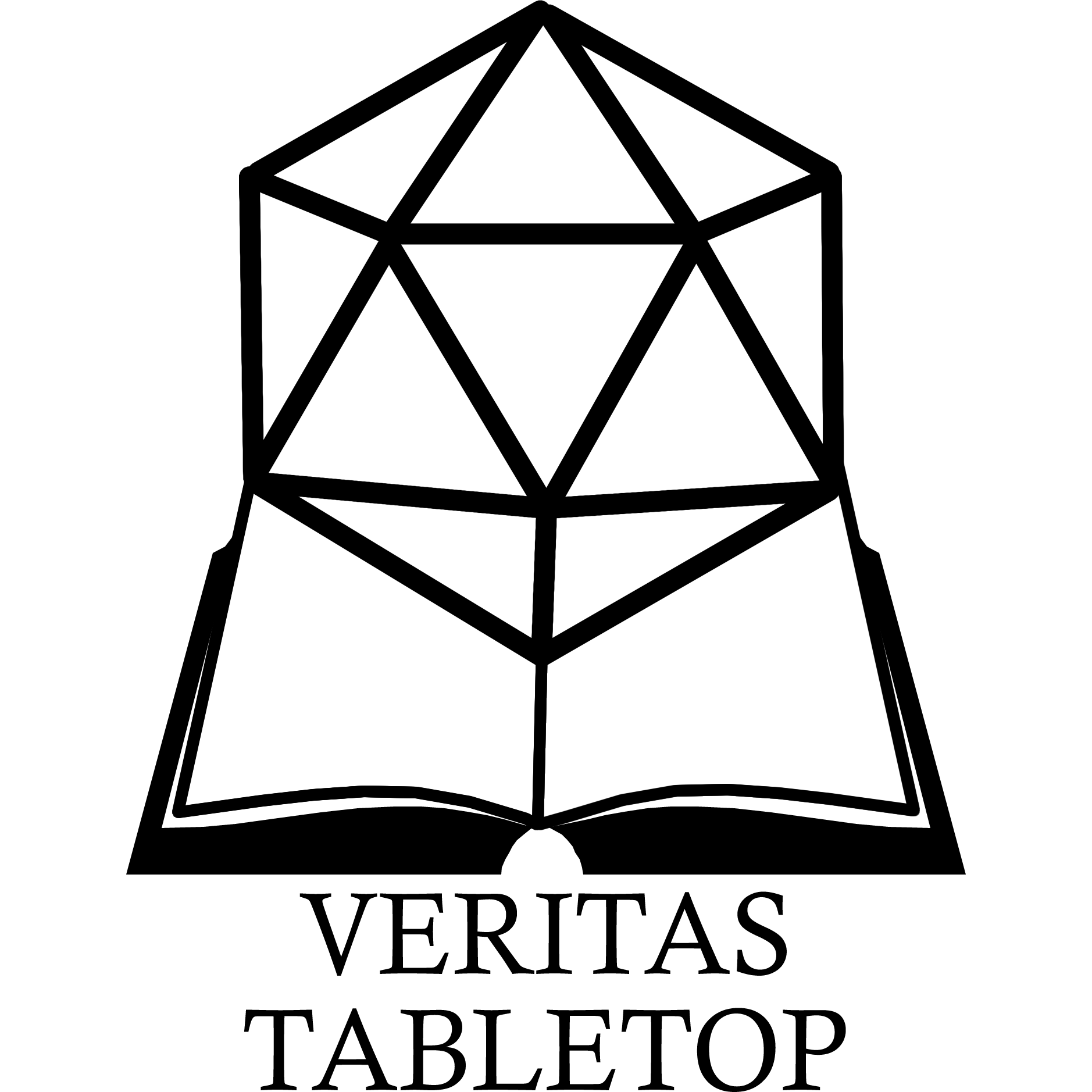Review: Cinderedge
Before delving into this year's October series properly, I wanted to kick off the month not with an article on zombies but with a review of a solo game that I got a chance to try recently and which has a physical version going live on Kickstarter tomorrow. Next week will see the start of my deep dive into zombies, don't worry. That solo game is Cinderedge by Grant Mielke, a psychological horror TTRPG about going slowly crazy and dying in a world that is literally on fire.
You can pick up Cinderedge on DriveThruRPG, or, if you prefer a physical copy of your games, you can back a physical print edition on Kickstarter at any time during the month of October (at which point, the physical edition might become hard to find! So back it now while you have the chance if you're interested in getting a hard copy!)
I received a free copy of Cinderedge in exchange for this review; it did not impact my review.
If you've been a long-time reader of the blog, you'll know that I love solo journaling games, and this one is no exception. The short version of the review is that it feels very inspired by Thousand Year Old Vampire, so if you're a fan of that game, I definitely recommend picking up Cinderedge. Want something different to try out solo? I have a whole series of other solo game reviews linked here:

Mechanics Overview
Like I said, Cinderedge plays very similarly to Thousand Year Old Vampire, except you're using cards instead of dice for the most part. You have a few stats: HP, your mind (basically your sanity), and your Ward (your protection from the all-consuming fire engulfing the world). You're tasked with carrying your physical ward around, since it will keep the fire at bay. Basically, you're a firefighter patrolling the world.
Each round of the game, your HP and your Ward both tick away, slowly decaying. Then, you draw a card to provide your prompt. Each card has three prompts associated with it: the first time you pull that card, you do the first prompt, then return the card to the deck. Pull it a second time, use the second prompt, and so on. That's a system straight from Thousand Year Old Vampire, and it still works well here to create a sense of progression--and here, an increasingly dire vibe--and to maximize the variety of the prompts you get. Sometimes, these prompts will have you further modify your stats, costing you extra health or fraying your mind, or giving you a chance to heal. Or, sometimes, granting you a memory or an item for your inventory. After journaling about your prompt/experience, you can then destroy a memory or an item in your inventory to regain either mind or HP, respectively, or you can sacrifice HP or mind to strengthen the Ward. Then, rinse and repeat as you play through your journey.
Whenever one your stats hits 0, you reset all of them to maximum and move to the next "chapter"--which, while it doesn't change the prompts you're getting, does add a new thing for each chapter, like hearing voices in your head. This also helps give the game a sense of progression.
This situates Cinderedge as more rules-lite, I think, than Thousand Year Old Vampire. At least, there's fewer fiddly bits to keep track of. On the other hand, it is definitely more rules-heavy than other journaling games like Quill.
All in all, I found the mechanics fairly straightforward! It certainly works as a journaling experience, and I felt that there were multiple ways in which the game builds story progression.
The Downsides
Still, I never write a review that is only the good. Cinderedge does have a few elements that irked me, mechanically.
The first comes from the layout. There's a few additional rules that aren't tied to a chapter--like sketching a map as you go and you discover locations--which I wish were in the prompts themselves rather than as a general rule for all cards of one suit. That rule is presented at the front of the book, which means that I sometimes forgot to do it, if I didn't flip back to the front. But that's a minor gripe and mostly a formatting one.
My bigger issue is that the random card draw for generating a prompt is more random than, say, the d10 minus d6 rule of Thousand Year Old Vampire. This means that your experiences do feel random. Sometimes, things work well and you can connect one experience to the next, but other times, it felt very disjointed.
Tone
Still, if I had a few issues with the details of the mechanics, those were by far overcome by how good this game's vibe is. I'm not familiar with the author's homebrew world, which means that I was mostly imagining the game's world just from what is presented in the prompts.
And while at first I was thinking that some of the prompts were falling flat more me, by the middle of my Chapter 1 journey, I was way more excited and into it. The slow chipping away at your ward and HP feels ominous. Erasing memories that you gained hurts, and I probably hit chapter 2 earlier than expected because I didn't want to give up any of my memories, leading to my Mind growing critically low.
Again, to compare it to Thousand Year Old Vampire, I think Cinderedge's system of tackling memories is simpler. There's no maximum number of memory slots, trying to fit a memory into a box or moving it into your diary, etc. That works for Thousand Year Old Vampire's focus on memories and time passing, but for Cinderedge's focus on exploring the world and surviving? Having this lighter-weight version that still keeps your memories feeling impactful was really well-done.
There was also a pervasive, depressing tone across the prompts that fit an apocalyptic game. Maybe it is because I'd just watched the movie adaptation of The Long Walk by Stephen King, but I enjoyed the sort of grueling monotony of my character's journey through a strange landscape and the impact that it had on his psyche. A lot of the prompts really showed and drove his fraying mental state in a way that felt natural, with enough flexibility for interpretation that I never felt like I was being pushed to take my character in a way that I didn't want to.
In short, it is certainly dark and heavy, but that can be powerful and even cathartic at times. The game suits its genre really well.
There was also an interesting sense of exploration that I hadn't really expected to see. Some of the location prompts were intriguing, raising questions like "why were there weird old pipes in the middle of the forest?" Maybe this would have been answered if I was more familiar with other things from the creator, but I enjoyed making up my own answer for what the world before the fire looked like based on the clues I got from the prompts – I just wish that I'd gotten to come back to those pipes a second or third time, but that was literally not in the cards for me.
Scale and Impressions
Cinderedge plays pretty fast for the genre that it is. Maybe I was writing less--certainly, I was writing less per prompt than I did for Thousand Year Old Vampire--but I also think that the relative simplicity of the mechanics, the fewer things to keep track of, helped keep this game shorter than the epic narratives of TYOV. All in all, each of the three chapters took me maybe an hour to play through, and I think that the game would have a lot of replay value due to the random nature of generating prompts. This makes it much more convenient to play if you're not looking to invest as much time as it would take for Vampire.
Like Thousand Year Old Vampire, Cinderedge is a moderately "gamey" solo game: more mechanical than the simple "letter writing with an excuse to roll dice" of Quill, less focused on mechanics and more on writing than Classified. It is lighter, with fewer bits to track, than Thousand Year Old Vampire, but otherwise has a fairly similar sort of framework.
And I hope my general impressions are clear. This game is not without small flaws around randomness and weaving an interconnected story. But it presents a great tone, and I think it really powerfully gives you a sense of progression through the narrative, through its chapters, the relentless clock of your decaying HP and Ward strength, and through having escalating prompts on each reappearance of a card. For it to pack that much narrative progression into a system that is so light, easy to pick up, and highly randomized by nature of the mechanics is impressive.
The tone of the game is brilliant, if depressing. Like Ten Candles (a game I love but have not properly reviewed– maybe I will one day), your fate is baked into the mechanical structure.
In short, if you want a game for tragic or survival horror to play alone, Cinderedge is an excellent entry into the genre. It is a fun solo RPG to play, the prompts are evocative, it is easy to pick up and not necessarily dedicate hours and hours and hours to tell a story with, and the game fits its genre really well. It is a genuinely impressively designed game, combining a lot of randomness (that only sometimes irked me) while maintaining a huge sense of narrative progression through a number of different mechanics all working together.
If you don't want heavy themes, the randomness of the prompts is going to grate on you a lot (aka, if you want something where mechanics steer you through related prompts a little more), or you don't like solo games / journaling games, then this might be one to skip.
You can pick up Cinderedge on DriveThruRPG as a digital version, or--for a limited time--you can back the Kickstarter to get a physical copy.
This article may include affiliate links, which allows me to get a small portion of the price you pay, at no extra cost to you or the creator.

